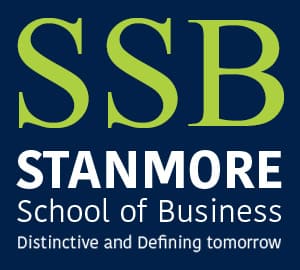Bridging the Skills Gap: Professional Certificate in Nanotechnology in Tissue Engineering Impact
-- viewing nowNanotechnology in Tissue Engineering: Bridging the Skills Gap The Nanotechnology in Tissue Engineering Professional Certificate program is designed to equip learners with the knowledge and skills required to succeed in this rapidly evolving field. This program focuses on the application of Nanotechnology in tissue engineering, covering topics such as biomaterials, nanoscale tissue engineering, and regenerative medicine.
4,046+
Students enrolled
GBP 140
GBP 202
Save 44% with our special offer
About this course
100% online
Learn from anywhere
Shareable certificate
Add to your LinkedIn profile
2 months to complete
at 2-3 hours a week
Start anytime
No waiting period
Course details
This unit covers the basic principles of cellular engineering, including cell culture techniques, cell signaling pathways, and cellular interactions with biomaterials. It provides a solid foundation for understanding the role of cells in tissue engineering. • Nanomaterials for Tissue Engineering
This unit explores the properties and applications of nanomaterials in tissue engineering, including their use in scaffolds, drug delivery systems, and biosensors. It covers the synthesis, characterization, and biocompatibility of various nanomaterials. • Biomaterials and Scaffolds in Tissue Engineering
This unit focuses on the design, development, and application of biomaterials and scaffolds in tissue engineering. It covers the principles of biomaterials selection, scaffold design, and fabrication techniques, as well as their integration with cells and growth factors. • Biomechanics and Biomechanical Testing
This unit covers the principles of biomechanics and biomechanical testing in tissue engineering, including the mechanical properties of biomaterials and tissues, and the use of biomechanical testing to evaluate tissue engineering constructs. • Regenerative Medicine and Tissue Engineering
This unit explores the principles and applications of regenerative medicine and tissue engineering, including the use of stem cells, growth factors, and biomaterials to repair or replace damaged tissues. • Biocompatibility and Toxicity Assessment
This unit covers the principles and methods of biocompatibility and toxicity assessment in tissue engineering, including the use of in vitro and in vivo testing to evaluate the safety of biomaterials and scaffolds. • Computational Modeling and Simulation
This unit explores the use of computational modeling and simulation in tissue engineering, including the development of mathematical models to predict tissue growth and behavior, and the use of computational tools to design and optimize tissue engineering constructs. • Cellular and Tissue Engineering Applications
This unit covers the applications of cellular and tissue engineering in various fields, including orthopedic, cardiovascular, and neural tissue engineering. • Quality Control and Assurance in Tissue Engineering
This unit focuses on the principles and methods of quality control and assurance in tissue engineering, including the use of good manufacturing practices (GMPs) and quality control protocols to ensure the safety and efficacy of tissue engineering products. • Professional Development and Career Opportunities
This unit provides guidance on professional development and career opportunities in tissue engineering, including the skills and knowledge required to succeed in this field, and the various career paths available to graduates.
Career path
| Role | Job Market Trend | Salary Range (UK) |
|---|---|---|
| Nanotechnology Engineer | High demand (40%) | £45,000 - £65,000 |
| Tissue Engineer | Increasing demand (30%) | £40,000 - £60,000 |
| Biomedical Scientist | Stable demand (20%) | £35,000 - £55,000 |
| Materials Scientist | Growing demand (10%) | £38,000 - £58,000 |
Entry requirements
- Basic understanding of the subject matter
- Proficiency in English language
- Computer and internet access
- Basic computer skills
- Dedication to complete the course
No prior formal qualifications required. Course designed for accessibility.
Course status
This course provides practical knowledge and skills for professional development. It is:
- Not accredited by a recognized body
- Not regulated by an authorized institution
- Complementary to formal qualifications
You'll receive a certificate of completion upon successfully finishing the course.
Why people choose us for their career
Loading reviews...
Frequently Asked Questions
Course fee
- 3-4 hours per week
- Early certificate delivery
- Open enrollment - start anytime
- 2-3 hours per week
- Regular certificate delivery
- Open enrollment - start anytime
- Full course access
- Digital certificate
- Course materials
Get course information
Earn a career certificate

